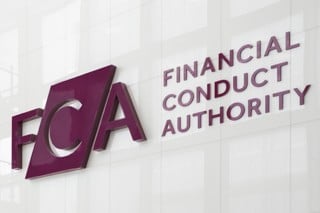The Supreme Court has made its decision on motor finance commissions in the Johnson v FirstRand Bank (trading as MotoNovo), Wrench v FirstRand Bank and Hopcraft v Close Brothers cases (Dealers are not a car buyer's "agent", rules Supreme Court, to industry's relief)
But what were the key points it has had to consider?
There are three parties involved in a dealership's motor finance deal at the point of sale: the car buyer, the dealer acting as a finance broker, and the finance house acting as the lender.
The crucial legal arguments surrounds whether a car dealer who receives a commission from the lender for arranging motor finance in this tripartite transaction has been doing so fairly or unfairly to the customer. Historically, dealerships have not informed the car buyer of the precise level of commission the dealer will receive from the motor finance house for arranging the buyer's finance.
The Financial Conduct Authority, which regulates the sale of motor finance and other consumer credit, has required dealerships to inform customers that they will earn a commission, but its rulebook does not require dealerships to state the exact amount of commission. In fact, in 2019 the FCA considered forcing dealers to share exact details of commission but decided against it. Although consumers could be affected by the amount of commission involved, the FCA doubted such detail would change their behaviour and it said they would be unlikely to engage with explanations of complex commission models.
The legal arguments in the three linked cases centre on whether the dealer owes a duty to the car buyer, and a failure to fulfill that duty leaves them open to a claim of bribery, or dishonest assistance, or for an unfair relationship under the Consumer Credit Act 1974.
In all three cases, a customer bought a car from a dealership on credit supplied by MotoNovo or Close Brothers Motor Finance. In each case, only one offer of finance was presented to, and accepted by, the customer.
Sign up to join a special interactive AM webinar on August 7 discussing the findings and next steps
The dealers, in all three instances, made a profit on the sale of the car but also received a commission from the lender for introducing the business to them. In the Hopcraft case, the commission was kept secret from the buyers. In the case of Wrench's and Johnson's purchases, they were unaware that a commission would be paid, however MotoNovo’s standard terms and conditions made reference to the payment of a commission of unspecified amount, and Johnson also signed a document which indicated that the dealer could receive a commission from the lender.
The Supreme Court had to decide whether there has been a distinct tort of bribery.
A tort of bribery is an unlawful act in civil law concerning the secret payment or benefit given to 'an agent' that has the aim of influencing their actions in relation to their 'principal'.
The legal arguments have focused on whether dealers are really 'agents' of car buyers in the eyes of the law, and whether they have a fiduciary duty to the car buyer. Or whether they have a lesser duty to provide impartial or disinterested advice.
A fiduciary duty is a legal and ethical obligation to act in the best interests of their customer, putting their needs above one's own. Ultimately, the question is, can a car buyer expect loyalty from the dealer which wants to sell them the car, and which needs to get the customer some finance to do so?
And should the court decide that the dealer does have an obligation to act in the best interests of the car buyer, then what level of disclosure by the dealer or finance house - such as informing the buyer that the dealer may or will earn commission from the lender, or explicitly informing them of the amount they will earn - negates the liability for bribery.
The level of commission, whether in relation to the overall transaction price or in relation to the cost of the finance, is also one of points of argument in this case, as under case law non-disclosure of excessive commissions could be deemed unfair under the Consumer Credit Act.























Login to comment
Comments
No comments have been made yet.